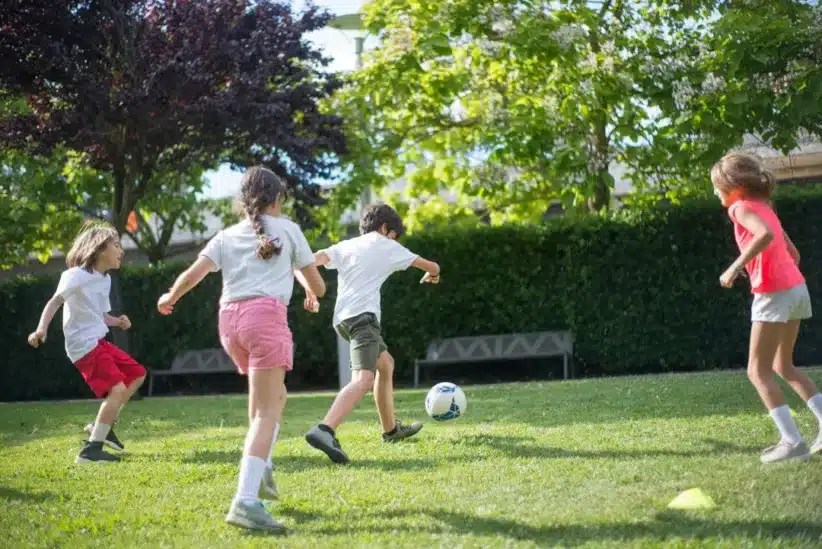
How to Know When Your Kid is Ready to Play Sports
One of the best things about the back-to-school season is that it’s also the back-to-extracurricular activities season! That means arts, clubs, and athletics are in full swing to ease the pressure of academics. And with this year’s unforgettable Summer Olympics, there has no doubt been a surge in aspiring young athletes going for the gold.
But how do you know when your child is ready for a sport? And how do you know what sport is ready for them? We’ve assembled a guide to help parents understand what sports best fit their kid, so that your little future Olympian will remember to credit you for their early start.
Ages 2 to 5
Walking is the first real sport that babies learn. Once that fundamental skill is developed, the more complex motor functions start to kick in. Not only is a love of exploration and discovery cultivated during this time, but so is muscle memory, a critical part of all athletics. Kids at this age should be encouraged to participate in activities that help progress the development of this crucial function.
Sports that facilitate freedom in play but also incentivize children to learn repetitive movements are ideal for inspiring early athletes. Some examples of early childhood sports are:
- Racing, including simple obstacle courses and mazes
- Jumping rope
- Dancing
- Basic gymnastics
- Throwing and catching a ball
- Swimming
- Hopscotch
- Riding a bicycle or tricycle
These are all activities that help children understand (both in mind and body) that repeating a movement over and over again is how it becomes easier to perform. And while it’s too early for team sports, having your child practice these activities in groups can help them get comfortable learning alongside their peers.
Ages 6 to 10
Once the fundamentals of muscle memory are acquired, it’s time to focus on balance, hand-eye coordination, and attention span. Parents can begin introducing sports with easy rules and basic gameplay strategy. When a child learns how to follow instructions, it’s a sign they’re ready for more complicated and collaborative sports such as:
- Baseball, softball
- Soccer
- Dance teams
- Martial arts
- Lap Swimming
- Roller skating and ice skating
These are all sports that build upon the foundation that is learned during the earlier childhood activities. Pay close attention to what sort of environment your child likes to be (Indoors or outdoors? In water or on grass?) and help them push themselves to learn that environment even more.
Ages 7-10 and Up
It’s junior sports league time! This is around the age your child will develop a stronger sense of teamwork, strategy, and sportsmanship. Of course, this also means a stronger drive towards competition. Cultivating a healthy sense of competitiveness is important in children of this age group, but it can be a tricky balancing act. You want your kid to want to win, but you also want them to be able to lose graciously.
A helpful way to encourage healthy competition is to avoid always framing the conversation around winning and losing. Instead, remind your child that they’re playing because it’s fun and it’s healthy, and it’s still both of those things regardless of which side gets more points. Here are some friendly competitive sports:
- Football
- Basketball
- Volleyball
- Tennis
- Hockey
- Soccer
- Golf
- Competitive Swimming
If your child still insists that winning is everything, remind them that every athlete who loves their sport deserves to win sometimes, and that means that you have to lose sometimes. After all, it’s not really a competition if you win every time, is it?
The Right Fit
With so many sports to choose from, it can seem overwhelming to try picking the best fit for your child. But that’s why it’s so important to pay attention during those early motor skill stages. Understanding the environment your child prefers as well as where their natural talents lie will give you a great idea of what activities they will enjoy and thrive in.
Do they constantly try balancing on the edge of the sidewalk? Try gymnastics and the balance beam. Do they like to make-believe they’re a superhero? Try martial arts. Do they love dancing around the living room with you? Encourage them to memorize a routine. The more they try, the more they discover what they love.
Psst…Want to spend more time outdoors? Here are The 7 Best Picnic Spots for Families in NYC




















